MercoPress. South Atlantic News Agency
Tag: Aecio Neves
-
Thursday, October 9th 2014 - 08:14 UTC
A blow for Dilma: Brazil's September inflation at its highest in three years
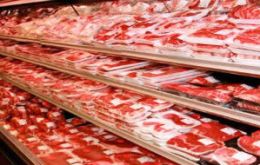
Brazil's annual inflation rate in September rose way above the official target to the highest in nearly three years, giving fresh ammunition to opposition candidate Aecio Neves in a run-off vote later this month against President Dilma Rousseff.
-
Wednesday, October 8th 2014 - 08:38 UTC
Brazilian pollsters missed percentages but 'confirmed tendencies'
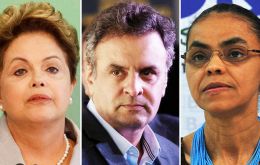
Although pollsters in Brazil got it right with President Dilma Rousseff victory and the growth tendency of runner up Aecio Neves in the last days leading to Sunday's presidential election, they failed dismally in percentage estimates.
-
Tuesday, October 7th 2014 - 05:56 UTC
Brazilian markets clearly support challenger Neves: Bovespa up 4.7%
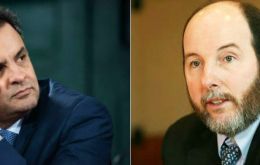
The Sao Paulo stock exchange soared 4.7% on Monday with the Bovespa index reaching 57.115 points following Sunday's presidential election when no candidate managed 50% of ballots, opening the way for a runoff between pro-business Aecio Neves and president Dilma Rousseff.
-
Monday, October 6th 2014 - 21:17 UTC
Dilma retained majority in Congress, theoretically, given the volatility of Brazilian parties
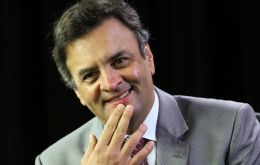
The multi-party coalition that currently supports Brazilian president Dilma Rousseff lost ground in Sunday's election but will keep its majority in Congress following on the results released by the country' Superior Electoral Tribunal, TSE.
-
Monday, October 6th 2014 - 07:51 UTC
Sao Paulo state, Brazil's largest electoral district delivers solid win for Neves party

The social-democrat (PSDB) governor from the state of Sao Paulo, Brazil's largest electoral district, Geraldo Alckim was re-elected on Sunday with 57,7% of ballots, which ensures a strong spring board for the presidential runoff between president Dilma Rousseff and her PSDB challenger on 26 October, Aecio Neves.
-
Saturday, October 4th 2014 - 10:38 UTC
Investors on edge waiting for the results of Sunday's voting in Brazil

Latin American currencies weakened on Friday after strong U.S. jobs data was seen as increasing the likelihood of higher interest rates in the world's largest economy, while Brazil markets fluttered in the last trading session before Oct. 5 elections.
-
Friday, October 3rd 2014 - 07:53 UTC
Latest poll shows Dilma winning the run off with seven point margin

Brazilian President Dilma Rousseff has extended her lead over environmentalist Marina Silva ahead of Sunday's Oct. 5 presidential election and would win a likely second-round runoff, a new poll showed on Thursday.
-
Saturday, September 27th 2014 - 06:34 UTC
Marina Silva pledges to de-politicize regulatory agencies and state corporations
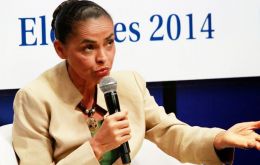
Brazilian presidential candidate Marina Silva vowed to de-politicize regulatory agencies that she says do more to win favor with government allies than ensure fair and efficient markets in Latin America's biggest economy.
-
Monday, September 1st 2014 - 14:05 UTC
Ascending Marina Silva ties with Dilma and polarizes the 5 October election
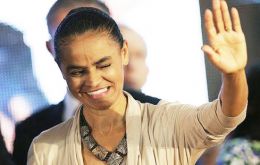
Presidential candidate Marina Silva has widened her lead over President Dilma Rousseff to 10 percentage points in what could be a likely runoff in Brazil's October election, a survey by polling firm Datafolha showed on Friday.
-
Friday, August 22nd 2014 - 07:07 UTC
Depressed Brazilian economy becomes focus of presidential campaign
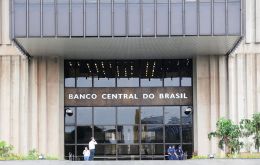
With less than two months to the crucial 5 October presidential election, Brazil's Central Bank continued to battle economic turmoil increasing the credit available for commercial loans in the hope of boosting the country’s stagnant growth figures.
